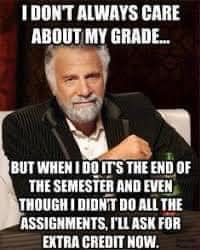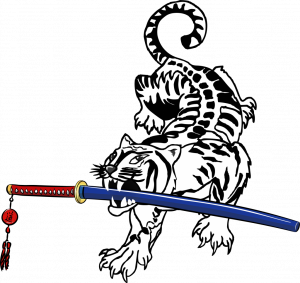 I don’t usually use a meme to make a point but…
I don’t usually use a meme to make a point but…
This one fits for martial arts very well. I’ve been teaching for over 35 years now and have seen a wide variety of students come through the door. Not only the typical 8 year old to 70+ year old but the reasons for why they’re in class.
I’ve got three concepts that are repeated constantly in classes, both Korean Karate and Korean sword.
- Do we have kids in class? A: No, we have students. This means age is not a consideration for learning and performing material correctly. It does come into play regarding how much I expect them to understand about their training, though.
- Who’s test is it? A: Yours! I took those tests MANY years ago and am not repeating them now.
- What six things must be prepared for every test? A: (Korean Karate) Stances, stances, stance, side kick, side kick, side kick and (Korean Sword) stances, stances, stances, cut lines, cut lines, cut lines. Basics are THE most important aspect of training.
Now, why are they training? There are many reasons documented and written about that are based upon many factors. One factor for the younglings can be “assigned” or “required” activity that parents include in their world. This is not to say that parents wanting achievements is wrong or incorrect. Leading their children to see a great variety of activities for a wide variety of reasons is past of the parental job.
The meme illustrates one aspect of this requirement. The younglings come to class and mostly do things. They may not be truly interested, so they don’t put a lot of effort into the time on the floor. Then rank testing is scheduled and they start asking if they can test. This is the version of extra credit. They start asking specific questions about material already taught but they didn’t worry about. Sadly, for them, we don’t have much in the way of extra credit. They are typically given two or three pre-tests to pass. If they don’t pass them, they don’t test. I have on a couple occasions tested a student knowing that they would fail but those were only when the student guaranteed they’d be ready. Some lessons are hard learned.
Some cases are affected by the athletic ability of the youngling. They can do lower rank work without much extra effort. The material gets tougher and their body continues to grow causing them to struggle more. Now they wonder why they’re testing is delayed. Hence the dislike for testing based on attendance. It is amusing to watch younglings try to understand their new body size and shape. Many things need to be worked on – flexibility, strength, balance – before they can start building quality techniques again.
Lastly, there are those younglings who have the assignment to train and learn but aren’t truly interested. It is even more unfortunate when the youngling has the intelligence and athleticism to be very good. When I see a youngling that is in this situation, I usually have a chat with them. The conversation compares academic study to training. Since I have yet to meet someone who enjoyed ALL of their academic courses, I’ll suggest to them that training be seen as those disliked courses in school. Work hard, learn the material and get the good grade. I feel this is an appropriate approach as it makes the youngling recognize what they are responsible for and keeps me from being distracted from helping other students grow. You will not like everything that needs to be done in life but many of those things still need to be done.
Author: Master Robert Frankovich
As you read and enjoy the posts on this site, please consider “sharing” them! The “likes” help generate additional readership but “sharing” will help even more! Thank you for your assistance!
If you have questions, please feel free to contact me!


